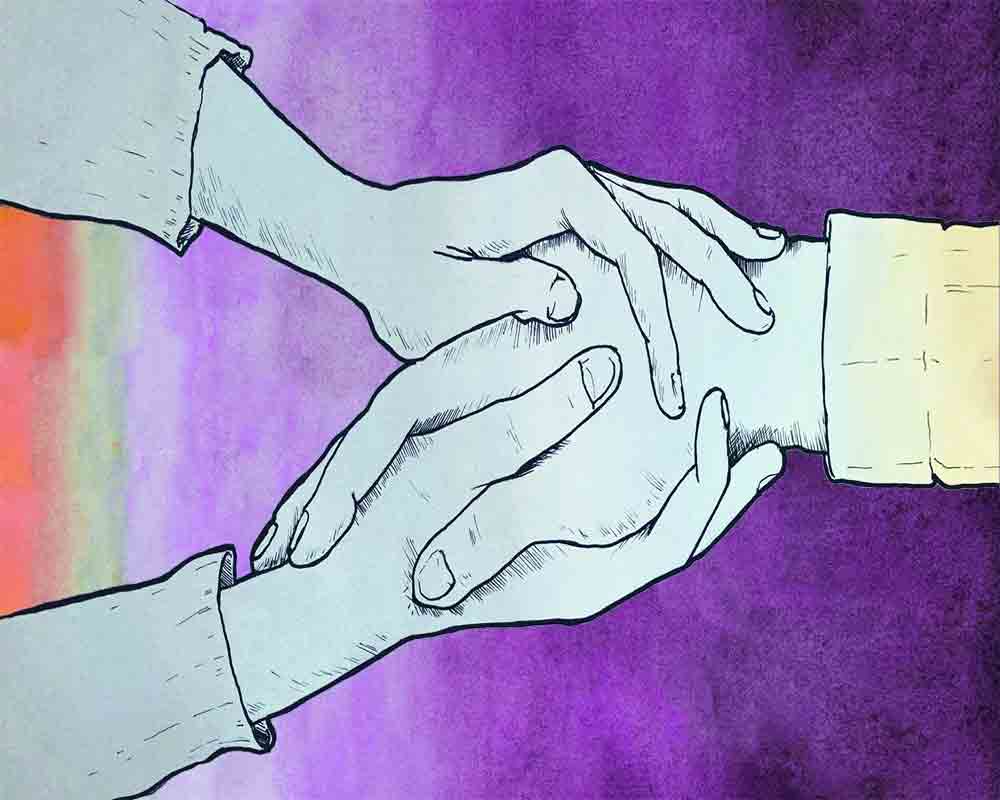Dr Malini Saba shares some valuable inputs on how to assist your friend in dealing with anxiety
It is fine to be scared and worried from time to time. In fact, these are defence mechanisms that often help us stay away from potential danger. However, there is another category of fear that surpasses the normal degree and can often seem irrational to those around us.
Those who exceed such levels are often subjected to anxiety and need the support of their loved ones.
If your friend is undergoing anxiety, here are 10 small ways you can help them.
Recognise the signs
Anxiety disorder is one of the most common mental disorders among young Indians. Recognising the symptoms can help you keep an eye out for a friend and catch the issue early on. Symptoms include:
Physical symptoms
Lightheadedness
Nausea
Diarrhoea
Fatigue
Emotional instability
Chronic worry
Fearful subjective to everything
Overgeneralising
Anxious behaviour
Frustration and irritability
Self-doubt
Don’t force acceptance and confrontation
The last thing you need to do is put an anxious person in the middle of a storm. While it is good to help them with self-realisation, pushing somebody when they are scared can further damage their mental health.
Show you are concerned
It is difficult to watch your friend deal with the underlying chaos beneath the anxiety. While a professional is more adept to pull them out of their condition, as a friend, you can show your support and express your concern explicitly. Having said that, maintain the delicate balance between concern and interference.
Take them seriously
Their fears and anxiety may seem irrational to you. However, it is as real as it can be for them and they need to know that you are not going to reprimand them for their problems. Refrain from saying phrases like ‘it’s just a phase’, ‘this does not seem to be such a big deal’, or ‘snap out of it’. Your acknowledgement will offer them some peace of mind, allowing them to feel secure about having someone who understands them.
Leave the diagnosis to professionals
Unless you are a licensed professional, refrain from googling symptoms and cures for anxiety and suggesting them to your friend. This will only increase their vulnerability and they will end up shutting themselves down to you. Help them talk to you by showing them your support. You can accompany them to therapy sessions and help them through the process but no psychological advice.
Validate their behaviour
This might be a reiteration, but those with anxiety are always self-doubting and have low self-esteem. There is often a desperate call for attention and you must validate your friend’s behaviour. What might be a normal occurrence to you can be very stressful to them which requires you to be sensitive to their thoughts. It is important to remember that validation requires a very healthy dose of patience as well.
Help them find support
During such difficult times, it can be hard for your friend to find the right professional support. You can help them find an appropriate resource. Do a deep dive research, talk to the local medical community and support groups to help your friend through these tough times.
Be there for them
This is not said enough but sometimes, your friend only needs you to be there. This is a simple yet uncommon practice that should be done more often, especially by those who are closest to the affected person. This applies to everyone with anxiety disorders since their mental health varies on different factors associated with their specific lives. The best you can do for your friend is to be there for them.
Epitomise calmness
Your friend needs to know that their support system is strong and calm. Since they need someone to rely on, you as a friend have to propogate calmness and help them take control of emergencies. For instance, in case of panic attacks, you should sit them down gently and ask them to breathe slowly, talking them out of their panicked state until they regain control or you get professional help.
Respect their space
Don’t let their anxiety become a spectacle. Your friend is already undergoing a personal crisis, it is important that you respect their space and do not allow others to encroach on their grounds as well!
Final takeaway
Anxiety is no laughing matter. By offering everyday encouragement, love and support to your friend, you can help them tide through some tough times.
(The author is the founder and chairman of various philanthropic organisations.)
























